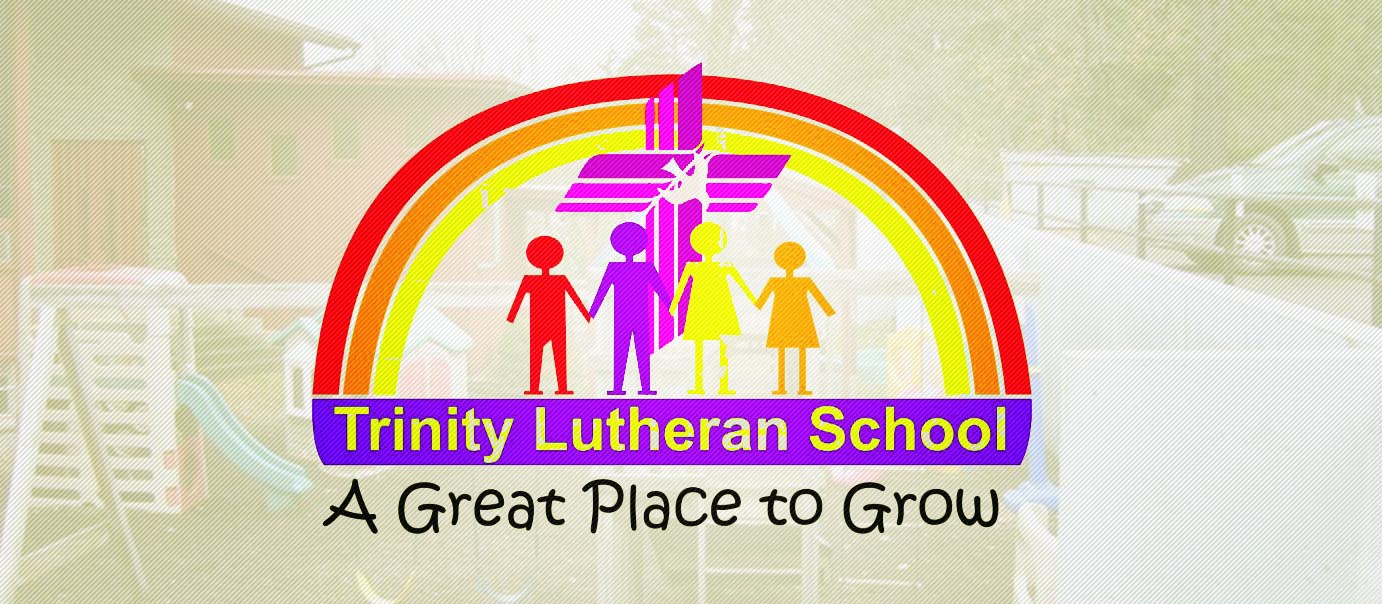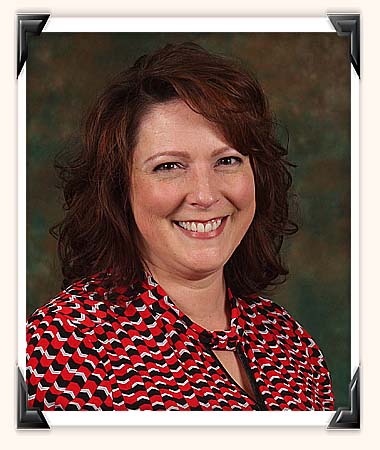
Head Teachers
Preschool - Kindergarten - Brenda Kohler
First - Sixth - Janice Hughes

Pastor Joe Weatherell
Pre-School-6th Grade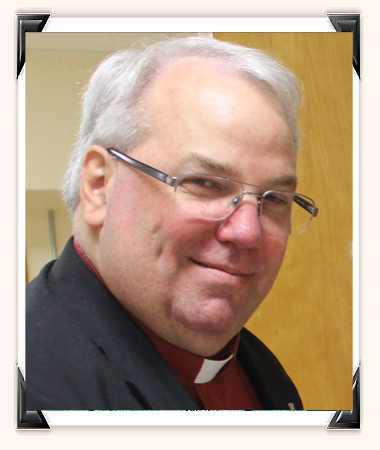
Learn God's love, teachings, and Bible stories. Chapel is the first day of the school week. We praise God through song and have a weekly message based on the Bible story of that week.
Religion Classes
Pre-School through 3rd grade religion classes are taught by their classroom teacher. These include basic Bible stories and Christian values.
4th-6th grades are taught by Pastor Joe. These classes take a more in-depth look into the weekly chapel lesson.

Alice Antal, Bridget Wheeler, Ashley Foil, Juliana Snowburg, Olivia Brought, Elizabeth Bireley
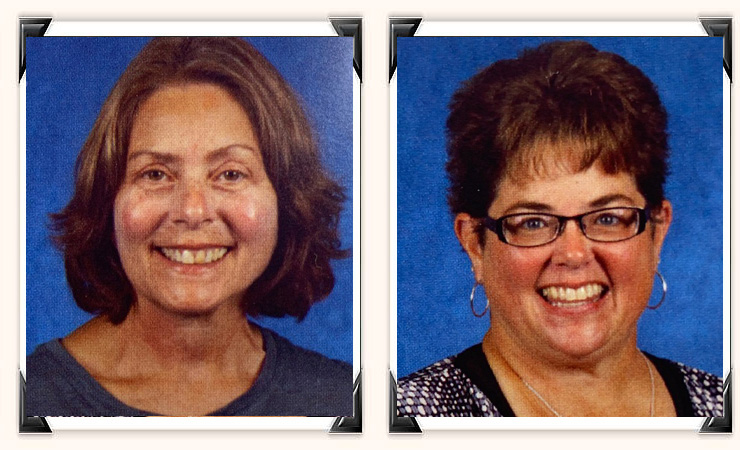
Available for students 3 to 5 years old, children must be three by August 1. All pre-schoolers must be potty trained.
At Trinity Lutheran School our goal is to provide a safe, comfortable and nurturing environment. We believe in both structured and unstructured activities that help the child to grow and develop. Play is an important learning tool in a preschool child; therefore it is integrated into the daily activities.
Monthly and Weekly Themes
Social Skills
-
Learning/sharing /expressing in an appropriate positive manner
-
Problem solving skills
-
Develop self-help skills
-
Large and small group activities - waiting for a turn, speaking at the right times
-
Development of confidence, motivation and self-discipline
-
Learn to appreciate similarities and differences among others
Learning Centers
-
Learning and expressing oneself in individual and independent play
-
Manipulating objects to develop fine and gross motor skills
-
Experiencing life situations through active play
-
Sensory activities
Motor Skill Development
-
Opportunities to develop fine motor skills necessary to write
-
Concentration on development of gross motor skills
School Readiness Skills
-
Small and large group activities
-
Learn to interact in a group situation
-
Introduction to the calendar – months – days of the weeks
-
Exploration of print literature and corresponding activities
-
Recognition of colors, shapes, letters, and numbers
-
Craft projects – open ended activities and directed activities
-
Beginning math skills
-
Beginning writing skills
Specials
-
Holiday activities
-
Two outdoor play areas
-
Music
-
Gym
-
Field trips
Sample Day
-
Table activities
-
Circle time
-
Center time
-
Snack
-
Story time
-
Center time
-
Outdoor activities or gym time
-
Craft project
-
Lunch
-
Recess
-
Story time – Bible story
-
Nap or quiet activities

Jill McCarthy 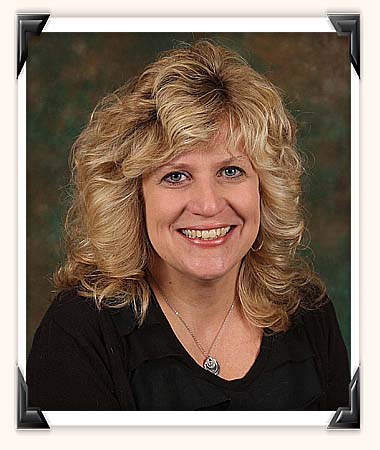
Age requirement-must be 5 by September 1.
Letter/sound association
Beginning reading - Recipe for Reading
Word families
Sadlier - Math - addition, time, money, patterns, comparing numbers, ordinal numbers, and numbers to 100.
Handwriting Without Tears
Science Concepts
Learning Centers
Religion/Basic Bible Stories
Social Studies - People and All About Me
Lego Education - basic problem solving
Computer
Art
Gym
Cherub Choir
Music

Nicki Oswald 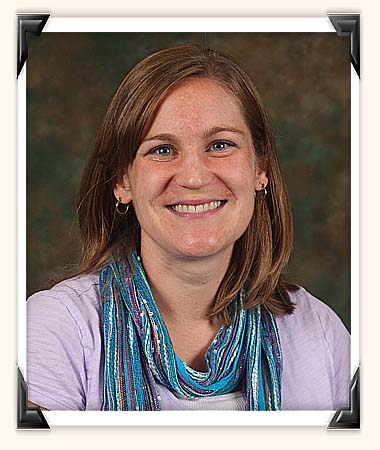
Language Arts -Sadlier -Basic parts of speech
Reading - Scholastic Reading Counts - Beginning, Open Court Reading/Phonics Based, picture books/beginning chapter books
Handwriting - manuscript
Math - number concepts, operations and graphing, addition and subtraction facts, geometry and fractions
Science - Centers and Discovery Works
Social Studies - Holidays, People, and Communities
Specials
Computer
Spanish
Physical Education
Art
Religion
Cherub Choir
Lego Robotics- Simple Early Machines
Music

Sandy Hulslander 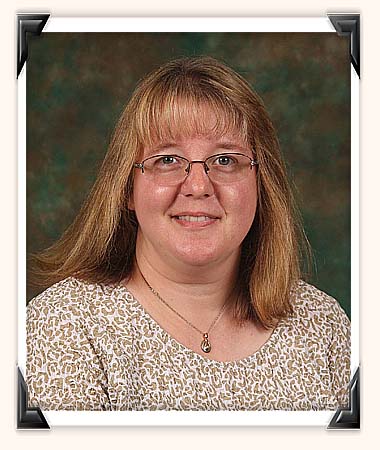
Math - Sadlier Math
Language Arts - Sadlier
Reading - Open Court Reading, Scholastic Reading Counts, Selected Grade Appropriate Novels
Science - Discovery Works - Conccordia Edition, Penn State Science Labs
Handwriting - Manuscript + Writing
Specials
Computer
Spanish
Physical Education
Art
Religion
Cherub Choir
Music
Lego Robotics : "We do" Robotics

Mrs. Cindy Baker
Math - Sadler
Language Arts - Sadlier
Reading - Open Court Reading, Scholastic Reading Counts, Selected Grade Appropriate Novels
Science - Discovery Works - Concordia Edition, Penn State Science Labs
Handwriting - Cursive Writing
Specials
Computer
Spanish
Physical Education
Art
Religion
Children's Choir
Lego Robotics & Motorized Mechanisms - Lego - "We Do" Robotics"
Music
Social Studies - Houghton Mifflin

Math - Sadlier
Language Arts - Sadlier
Reading - Open Court Reading, Scholastic Reading Counts, Selected Grade Appropriate Novels
Science - Discovery Works - Concordia Edition, Penn State Science Labs
Handwriting - Cursive Writing
Specials
Computer
Spanish
Physical Education
Art
Religion
Children's Choir
Lego Robotics & Motorized Mechanisms - Lego - "We Do" Robotics"
Music
Social studies - Houghton Mifflin

Janice Hughes/Brenda Kohler 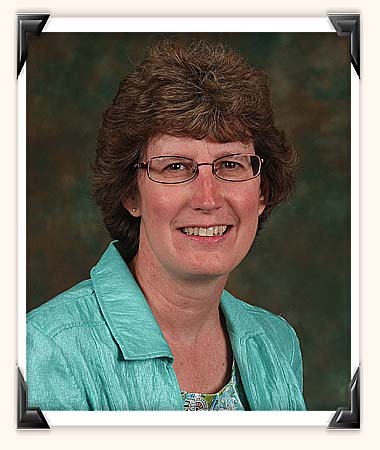
Math - Sadlier
Language Arts - Sadlier
Reading - Open Court Reading, Scholastic Reading Counts, Selected Grade Appropriate Novels
Science - Discovery Works - Concordia Edition, Penn State Science Labs
Handwriting - Cursive Writing
Specials
Computer
Spanish
Physical Education
Art
Religion
Children's Choir
Lego Robotics & Motorized Mechanisms - Lego - "We Do" Robotics"
Social studies - Houghton Mifflin
Us History 1400 to the present

Janice Hughes/Brenda Kohler 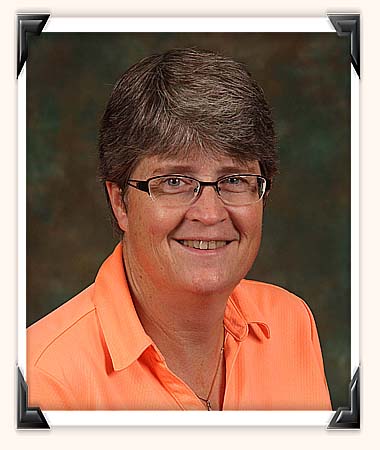
Math - Sadlier Math
Language Arts - Sadlier
Reading - Open Court Reading, Scholastic Reading Counts, Selected Grade Appropriate Novels
Science - Discovery Works - Concordia Edition, Penn State Science Labs
Handwriting - Cursive Writing
Specials
Computer
Spanish
Physical Education
Art
Religion
Children's Choir
Lego Robotics & Motorized Mechanisms - Lego - "We Do" Robotics"
Social studies - Houghton Mifflin
Us History 1400 to the present

Catherine Wimbrough
Trinity's Music class focuses on the history of music, learning how to read musical notes, writing music, learning to play the recorder (4th grade) and bells (5th-6th grade). We do many fun things, including watching musical videos.
When you sing, you pray twice. Trinity's students participate in choral singing in addition to general music instruction to grow a "singing culture" at our school. Preschoolers present two short programs annually, at Christmas and in June. Grades K-2 (Cherub Choir) and 3-6 (Children's Choir) present full-length Christmas and Spring Programs, sing for Chapel worship, and sing at nursing homes. In addition to sacred music, the students learn standard repertourie, and have been preparing musicals in recent years that relate areas of study in social studies (The Adventures of Lewis & Clark, The American Dream). Each student is evaluated on criteria to meet PA Arts Standards, including performance practice, music reading, technical skills (matching pitch, direction, rythm, ensemble singing) and expressive interpretation.
Music at Trinity is an intregal part of the curriculum and school life. We learn a lot, and have fun doing it! Our goal is to teach basic musical skills, learn some of the history of music, and give our students many types of hands on musical experiences. We believe that when you sing, you pray twice, and strive to build a “singing culture” at our school.
General Music is offered for all students, preschool-grade 6. Preschool students learn through singing, movement, playing instruments, and listening, using materials of Kodaly, Orff and Musikgarten. Grades K-6 learn to read musical notation, learn about many kinds of music, from orchestral to opera to jazz, and “read to sing,” an approach that encourages reading school-wide.
Recorder playing is introduced in 4th grade, and students play for school events throughout the year, including the Christmas program and Chapel services.
Handbell Choir is offered to 5-6th grades. Using Suzuki tone chimes, students get ensemble playing experience for school programs and chapel services.
Cherub Choir, for students in grades K-2, meets one day per week. This introduction to the choral experience emphasizes breath technique for singing, use of head voice, learning to read music, and singing in unison and in parts. Cherub Choir sings for school programs and Chapel services.
Children’s Choir, for students in grades 3-6, also meets one day per week. This choir continues to teach basic singing technique, increases part singing, and allows for solo work. In addition to sacred music prepared for Chapel services and school programs, students have presented musicals in recent years related to social studies topics (The Adventures of Lewis and Clark, The American Dream, We Haz Jazz, Folk Songs from Around the World).
Private lessons: instruction is available, during the school day, for private instrument study on piano (grades 2-6), voice (grades 2-6), flute (grades 4-6).
Each student is evaluated on criteria to meet PA Arts Standards, including performance practice, music reading, technical skills (matching pitch, intonation, rhythm, ensemble singing), expressive interpretation, history, and styles/genres of music.

Brenda Kohler
Trinity's Computer course is an introduction to the world of computers in our networked computer lab with educational games up to 3rd grade. Keyboard, Microsoft PowerPoint, Microsoft Excel, and Microsoft Word curriculum begins in 3rd grade and continues on until graduation. Students are taught how to properly use these applications, and learn how to apply them to everyday life. Various keyboard instruction applications are used. Students apply these keyboard skills to work efficiently with Microsoft Office, and prepare them for later and more difficult computer applications.
Trinity recently obtained 10 iPads, an eBeam interative whiteboard system, and LEGO robotic systems to apply to the technical as well as the core curriculum of the school.

Janice Hughes
5th and 6th grade receive Mrs. Hughes' Science course and focuses on most scientific studies including biology, physical science, and many other scientific studies. Before 4th grade, students work with various age-appropriate scientific studies.

Elizabeth Cooper
Trinity's Spanish class teaches basic conversation including greetings, numbers from 0 to 100,
weather, sports, seasons, days of the week, and months.
We also learn about Hispanic history and ethnic studies, and other Hispanic topics.
Classes begin in 1st grade and continue through 6th grade.

Andy McIlvain
Trinity's Art classes teach an introduction to art, including artistic utensils, art history, famous artists, and types of art. Students will learn how to use paint, oil pastels, and other artistic tools. By the time they graduate, they will have experienced most forms of art, including clay, and other hands-on art forms.

Brenda Kohler
Physical Education Classes are provided for Pre-School through 6th grade.
Trinity's Physical Education course provides age-appropriate exercises, always beginning with proper warm-ups for optimum physical performance. We partake in the National Physical Fitness program, in which students will compete for the National award or Presidential award. Certain ages need a certain ranking to get one of the awards.
